(The UN High-Level Panel on Digital Cooperation)
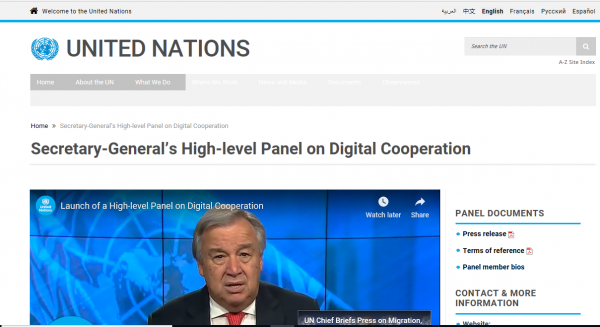
(Another shot of the panel)
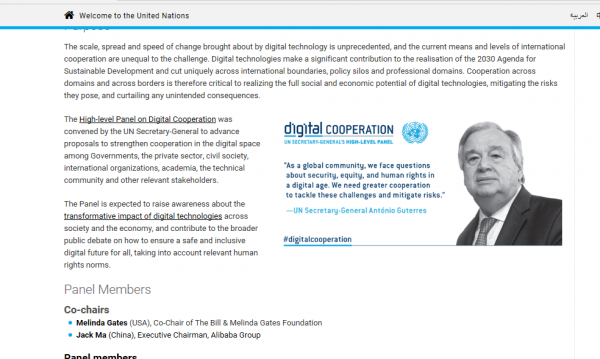
(Digital Cooperation)
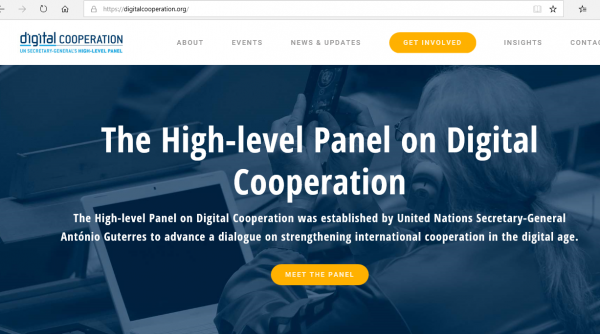
(Internet Governance Forum, 2012, in Columbia)
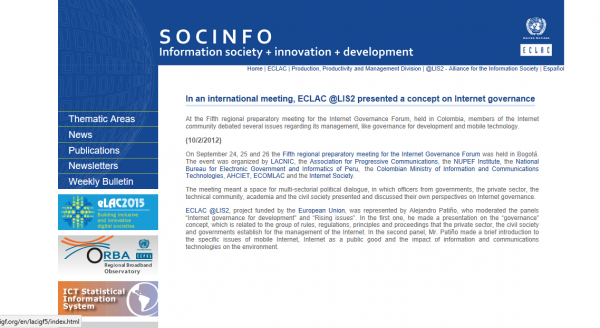
(Arab Internet Governance)
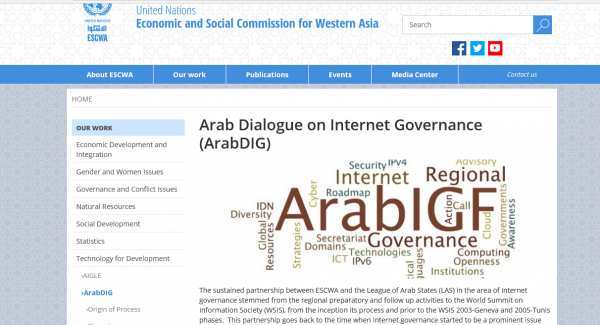
(Internet Governance, Challenges & Opportunities)
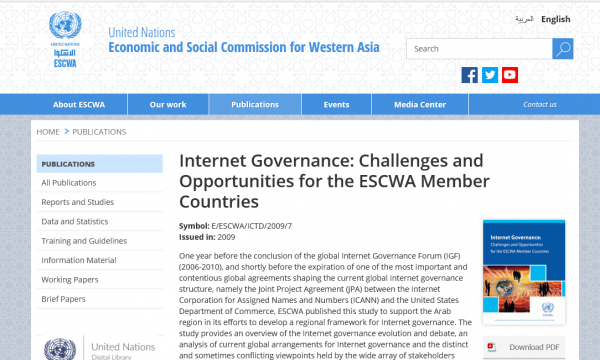
(Burnaby South debate. Watch at 7:25 in video)
https://www.youtube.com/watch?v=t_hCHQnwjW0
(Burnaby South Liberal Candidate Richard Lee supports UN regulation of internet)
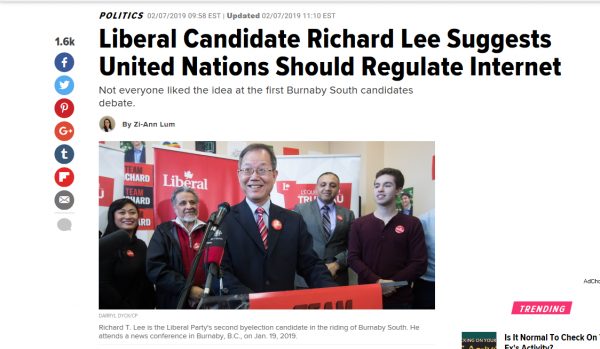
1. Important Links
(1) http://www.un.org/en/digital-cooperation-panel/
(2) http://www.un.org/en/pdfs/HLP-on-Digital-Cooperation_Press-Release.pdf
(3) High Level Panel On Digital Cooperation Press-Release
(4) https://digitalcooperation.org/
(5) https://www.cepal.org/cgi-bin/getProd.asp?xml=/socinfo/noticias/noticias/4/48074/P48074.xml&xsl=/socinfo/tpl-i/p1f.xsl&base=/socinfo/tpl-i/top-bottom.xsl
(6) https://www.unescwa.org/sites/www.unescwa.org/files/events/files/program.pdf
(7) Arab Internet Governance Forum
(8) https://www.unescwa.org/sub-site/arabDIG
(9) https://www.unescwa.org/publications/internet-governance-challenges-and-opportunities-escwa-member-countries
2. Quotes From Website
Purpose
The scale, spread and speed of change brought about by digital technology is unprecedented, and the current means and levels of international cooperation are unequal to the challenge. Digital technologies make a significant contribution to the realisation of the 2030 Agenda for Sustainable Development and cut uniquely across international boundaries, policy silos and professional domains. Cooperation across domains and across borders is therefore critical to realizing the full social and economic potential of digital technologies, mitigating the risks they pose, and curtailing any unintended consequences.
The High-level Panel on Digital Cooperation was convened by the UN Secretary-General to advance proposals to strengthen cooperation in the digital space among Governments, the private sector, civil society, international organizations, academia, the technical community and other relevant stakeholders.
The Panel is expected to raise awareness about the transformative impact of digital technologies across society and the economy, and contribute to the broader public debate on how to ensure a safe and inclusive digital future for all, taking into account relevant human rights norms.
A number of questions here:
1/ Is this “global cooperation” being used to advance Agenda 2030?
2/ Social potential as in what?
3/ Why strengthen cooperation? Is this a form of policing?
4/ Safe and inclusive digital future? Does this mean that opinions or ideas that don’t make people feel “safe and inclusive” will be banned?
5/ Human rights norms as in what? Censoring of ideas? Something like a global M103 (to ban criticism of Islam)?
6/ Seeing how Statistics Canada has no issue with privacy breaches, what kinds of safeguards can we expect here?
Process
The Panel will hold two in-person meetings in September 2018 and January 2019, and will meet virtually as required.
The Panel will also seek to gather the views and proposals of Member States, relevant industries, civil society and academia worldwide through a careful consultation process. It will draw expertise from expert communities across the globe through engagement at existing events, conferences and forums as well as call for contributions from the general public through virtual hubs and online participation platforms. Two regional consultations will be organized in Asia and in Africa.
The Panel will complete its deliberations and submit its final report, including actionable recommendations, within a nine-month period. The report will map trends in digital technologies, identify gaps and opportunities, and outline proposals for strengthening international cooperation in the digital space.
FAQs
Why was the Panel established?
Current means and levels of international cooperation are not commensurate with the scale and rapidity of changes brought about by digital technologies. Digital technologies cut uniquely across international boundaries. Cooperation across sectors and across borders is critical to realizing the full social and economic potential of digital technologies as well as mitigating the risks they could pose.
Why is it called High-level Panel on Digital Cooperation?
The term Digital Cooperation aims to frame discussions on digital issues in a cooperative framework; it also aims to break silos by encouraging thinking and action across domains, and build trust among various stakeholders.
What are the expected outcomes?
The Panel will submit a report that will provide a high-level independent contribution to the broader public debate on digital cooperation frameworks and support Member States in their consultations on these issues.
The report is expected to: 1) raise awareness about the transformative impact of digital technologies across society and the economy, 2) identify policy, research and information gaps as well as ways to improve interdisciplinary action on digital technologies, and 3) present concrete proposals to strengthen cooperation in the digital space in an effective and inclusive manner.
It is expected that the consultation process leading to the report will contribute to stimulating discussion among and between various stakeholder groups on how they can work together to maximize the potential of the digital transformation.
Guess what isn’t mentioned here?
Free speech, privacy.
How is this different from other panels, commissions and international forums on similar topics?
The Secretary-General welcomes the increased focus on the implications of digital technologies for our society and our economy through commissions, conferences and other forums. This signifies that the timing is ripe for the digital policy ecosystem to evolve to the next level of maturity.
The work of all these initiatives can and should be mutually reinforcing. Wherever possible, this Panel will work with other initiatives and seek to identify synergies and complementarities.
Word salad.
How is the Panel supported?
The Panel is supported by a small Secretariat funded by donor resources, and based in New York and Geneva.
How were the Panel members selected?
The Secretary-General invited 20 independent experts with a range of professional and academic backgrounds in fields related to technology and policy. All members serve in their personal capacity, not as representatives of their affiliated institutions.
The Panel’s composition represents a broad mix of disciplines and sectors, geographic, gender and age diversity in an effort to reflect the cross-boundary nature of the digital sphere. Given that young people will be disproportionately affected by the future impact of a digital society, the Panel includes several individuals under the age of 35.
Racial diversity.
Gender diversity.
Age diversity.
No mention of diversity of thought. Perhaps how some person think can be a bad idea.
Contact and More Information
Visit the dedicated website for further information, engagement opportunities and news: www.digitalcooperation.org
For updates about the Panel, follow on Twitter at @UNSGdigicoop or sign up for the mailing list.
To provide suggestions or comments, contact the High Level Panel Secretariat at: digitalcooperation [at] unops.org
Bios
3. Some Thought
To be frank, the idea that the UN is actually getting together for “digital cooperation” is downright scary. Which ones will be “enhanced” by digital cooperation?
- UN Global Migration Compact
- Paris Accord
- Proposed UN Global Government
- Agenda 21, Agenda 2030
- Global Citizen Education Agenda
- New Development Financing
- Efforts to ban criticism of Islam
- Any of the dozens of other initiatives?
Liberal Candidate for the Burnaby by-election, Richard Lee says that he supports having the UN regulate internet activity. And the UN openly supports “digital cooperation”.
Is this the next frontier?
What exactly will they cooperate on? This is disturbingly vague? Will there be “cooperation” to stifle unpopular opinions? Perhaps to censor ideas and beliefs deemed inappropriate? Will this be a way to monitor and prevent criticism of Islam?
Will this be a means to streamline continued mass migration, or to continue financing UN scams like
